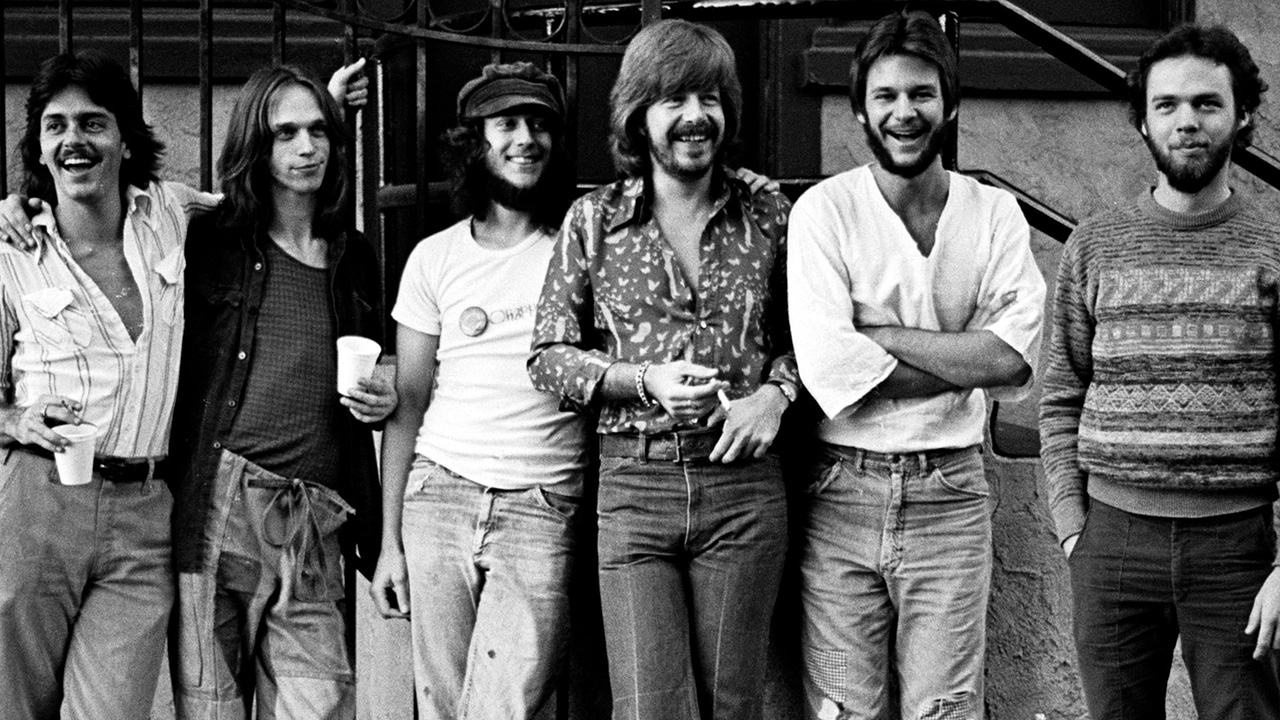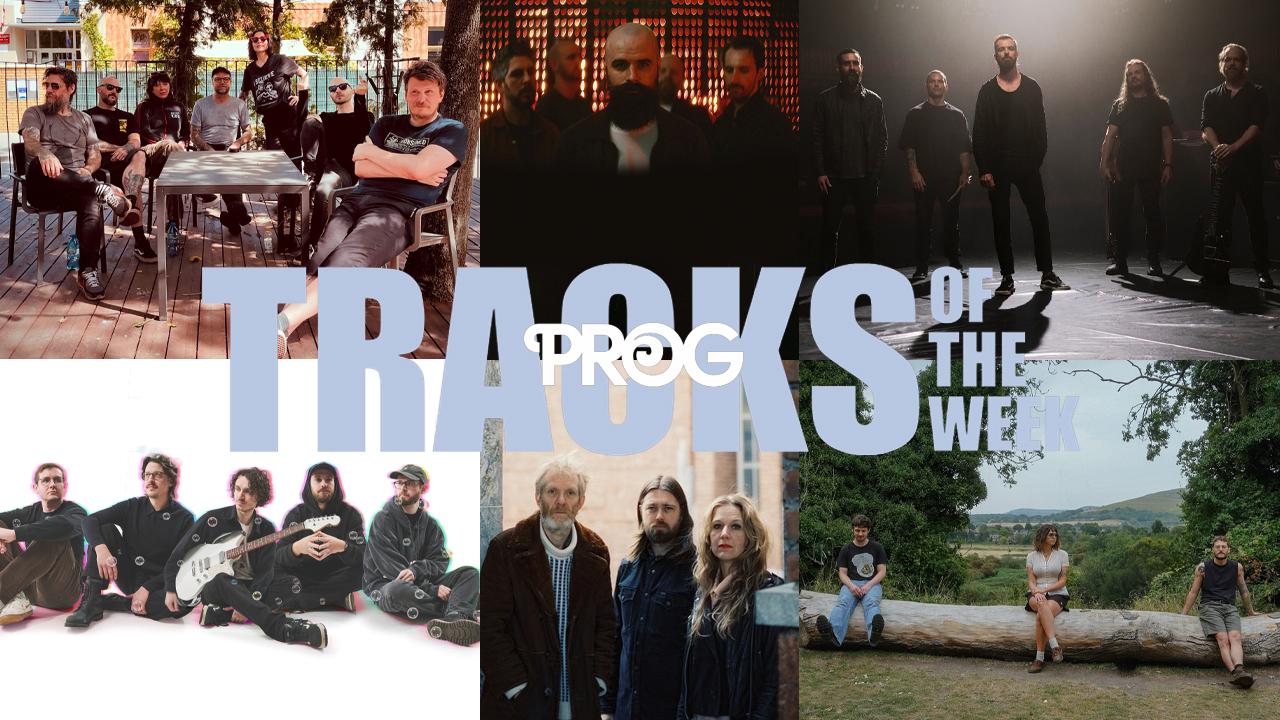“We were insisting we’d maintain our own identity, and perform a set before Peter Gabriel joined us onstage… I’m pretty sure that’s what soured the deal!” Happy The Man’s very brief stint as Gabriel’s backing band
The trials and tribulations – sometimes self-induced – of trying to be a prog band in America

The 2023 death of Frank Wyatt, co-founding saxophonist and keyboardist of Happy The Man, was the catalyst for the 2024 reunion of the American prog veterans. In 2019 – already several years into a cancer battle – Wyatt told Prog about how he’d devised a way to get all his former colleagues on that year’s solo album, Zeitgeist.
What inspired you to put the Zeitgeist project together?
I decided that I wanted to do a reunion with everyone I’d ever played with, so I reached out to everybody, wrote all these songs and put together Frank Wyatt & Friends. For the last five or six years I’ve been sick, so I’ve been fighting, trying to get the project completed.
Now I’m in the studio writing another record called Atlantis. I figure that music is the best medicine for me, so I’m going to try to keep cranking it out for as long as I can.
Is Zeitgeist where your head is at musically at the moment?
Yeah, I guess so. I’m leaning more towards orchestral and symphonic ideas. It’s so much easier for me to create that way, because I have my studio with all the sampled instruments and modular synths sitting around me. It would be different if I could get a band to come in and play, so it’s out of necessity as much as anything.
The songs I wrote for Zeitgeist are pretty much typical of me, but when you expose them to different combinations of musicians, different feelings emerge. I’m really happy with how it turned out.
Sign up below to get the latest from Prog, plus exclusive special offers, direct to your inbox!
You started off as a jazz musician, so how did prog sink its talons into you?
It all happened at James Madison University in Virginia. That’s where I met Stan Whitaker [Happy The Man guitarist] and Kit Watkins [keyboards]. I met Stan in a jazz theory class. He’d just moved there from Germany and he turned me on to all these progressive bands.
He played me things like Gentle Giant, Colosseum and Soft Machine and I was like, “Holy shit! This is awesome!” I’d never heard anything like it. It changed my whole world.
Was there any kind of prog scene in the US when Happy The Man started, or did you feel isolated?
Oh, we definitely felt isolated. I don’t know that there were any other bands doing this kind of music. After we signed to Arista, we met Ethos out of Fort Wayne, Indiana, they were sort of progressive. Bands like Kansas and Dixie Dregs, maybe? I don’t know, because it’s a difficult genre to define. I don’t know if our music was ever easily defined. It was pretty unique.
Legend has it that Happy The Man nearly became Peter Gabriel’s backing band in 1975...
Yeah, it was right before we got signed. Peter came and spent a couple of days with us in a rehearsal studio. I remember we worked up Solsbury Hill, which he hadn’t released yet because he’d only just left Genesis. That was a hoot! It was a fantastic day and I don’t think I’ll ever forget getting to play with him because he was one of my heroes.
How did you end up missing out on that opportunity?
I think we were insisting that we would maintain our own identity and perhaps come out to perform a set as Happy The Man before Peter joined us onstage. I’m pretty sure that’s what soured the deal! If we were given the opportunity again and with me knowing what I know now, I would vote for whatever we needed to do to become that guy’s band!
When those first Happy The Man records came out, did you have high expectations?
Yeah. I don’t think we were realistic about anything! We had very high hopes. After the first album came out [Happy The Man, 1977], we toured with Foreigner and Hot Tuna, which were not really good match-ups – but I don’t know who would’ve been.
Stan and I have talked about this a lot: we’ve always said that if we’d been able to tour Europe, it would’ve been a whole different story for us.
We’ve always said that if we’d been able to tour Europe, it would’ve been a whole different story for us
Arista Records dropped you in 1979 and that seemed to spell the end of the band...
Well, disco was starting to take over and Arista were more interested in Barry Manilow at that point! The band was done but I was determined to stay in it.
I took our epic composition Death’s Crown [eventually released in 1999] up to Manhattan to try to put it in some off-Broadway theatre scenario. We put together a production, re-titled The Hanged Man, and we’d lined up some dancers and it was going swimmingly – until the backers pulled out, so that was that.
Now I was in Manhattan so I got a job as a carpenter and ended up in construction for the next 25 years.
Happy The Man reformed for NEARfest in 2000, which led to a new studio album, The Muse Awakens, in 2004. Did things go better second time around?
We were signed with InsideOut; and again, if we’d been able to go to Europe it would’ve worked out much better for us. Instead we were still isolated in the US where there’s still no progressive market to speak of. So we didn’t really notice that much of a difference, and in fact we toured even less than in the early days!
If an opportunity arose to reform the band again, would you take it?
Well, I’m never going to say never again! I really don’t know. If it’s a reunion in the studio or in the project sense, like Zeitgeist was, where we’re trading tracks back and forth, I’d give that a much higher probability than if it were to try and go out to perform live. But there’s always a chance that new music will come out of different combinations of those musicians again.

Dom Lawson began his inauspicious career as a music journalist in 1999. He wrote for Kerrang! for seven years, before moving to Metal Hammer and Prog Magazine in 2007. His primary interests are heavy metal, progressive rock, coffee, snooker and despair. He is politically homeless and has an excellent beard.
